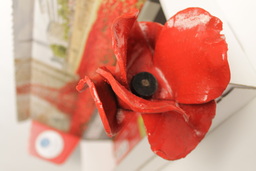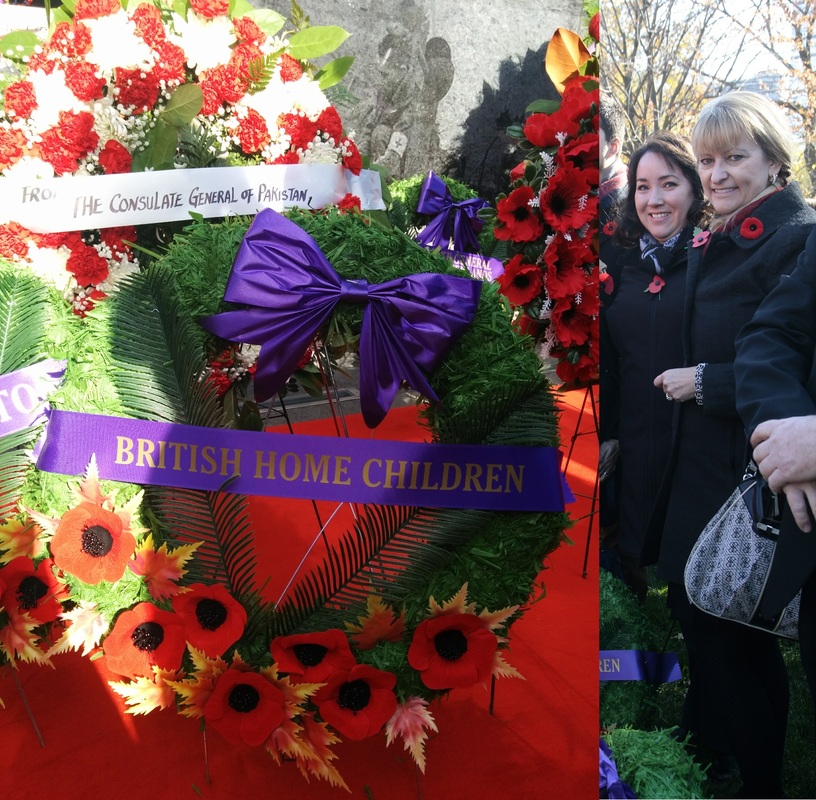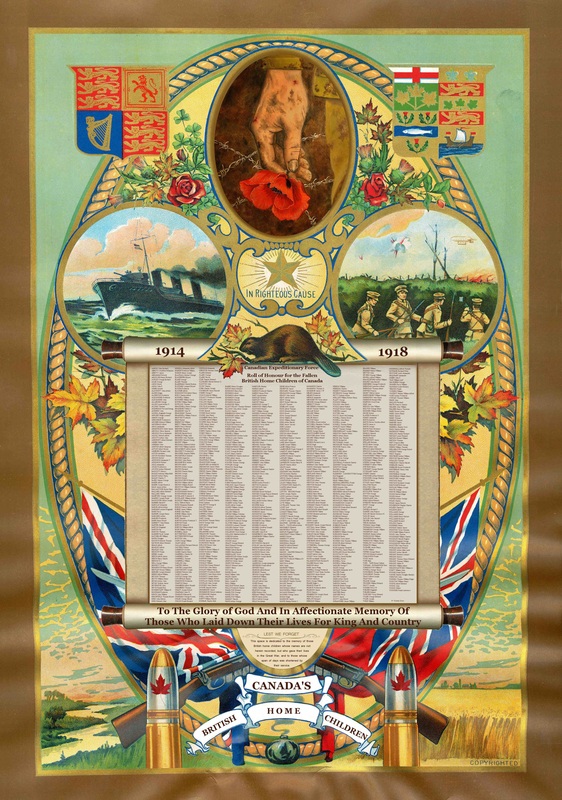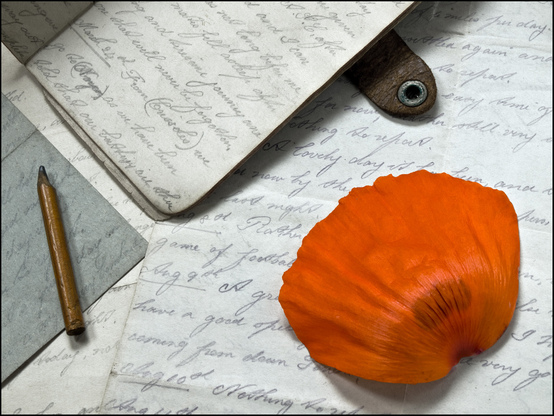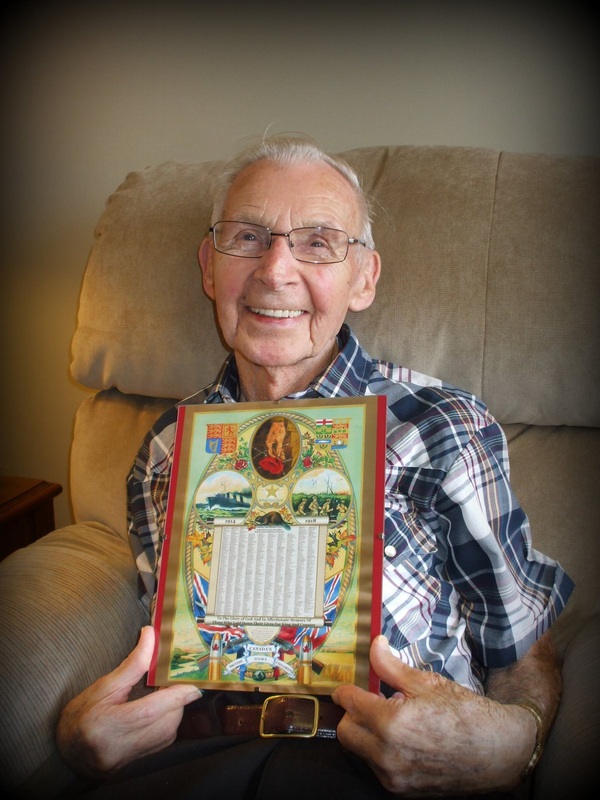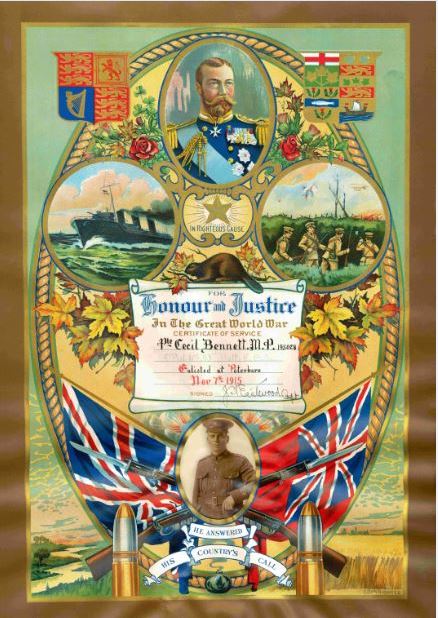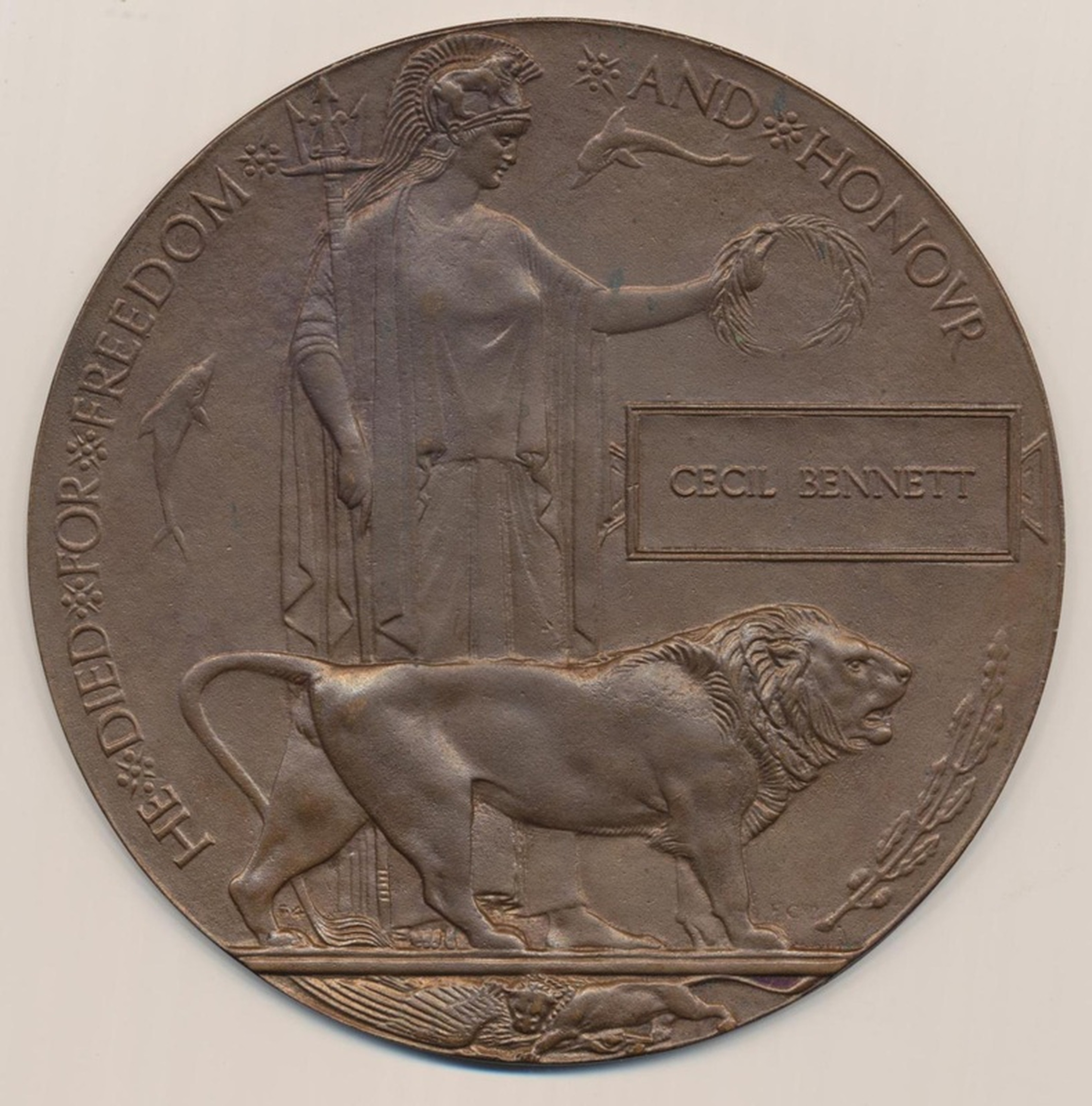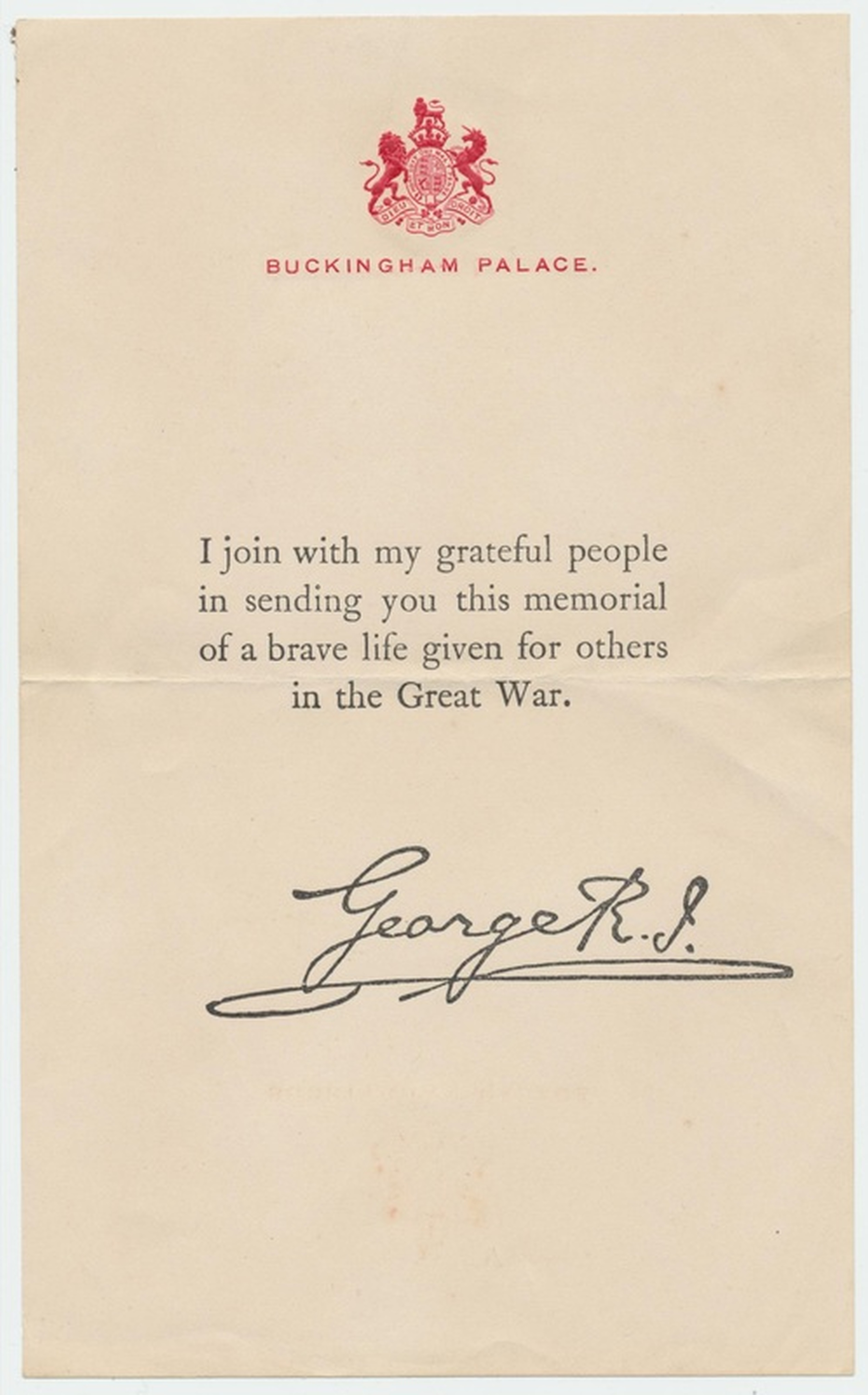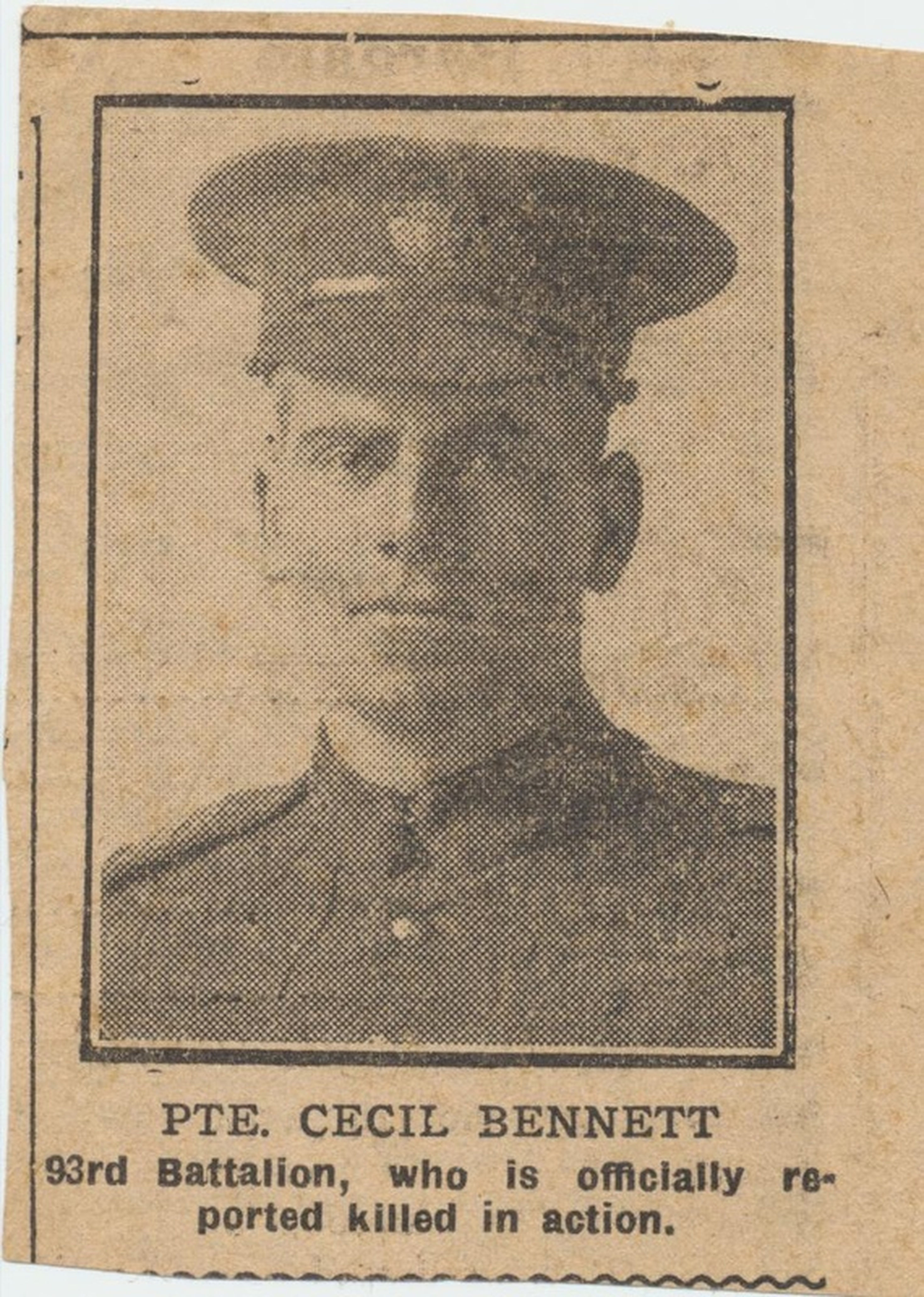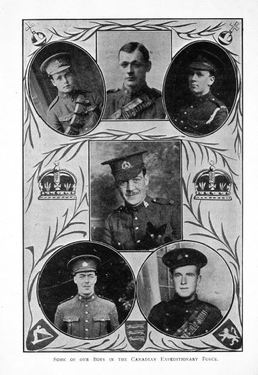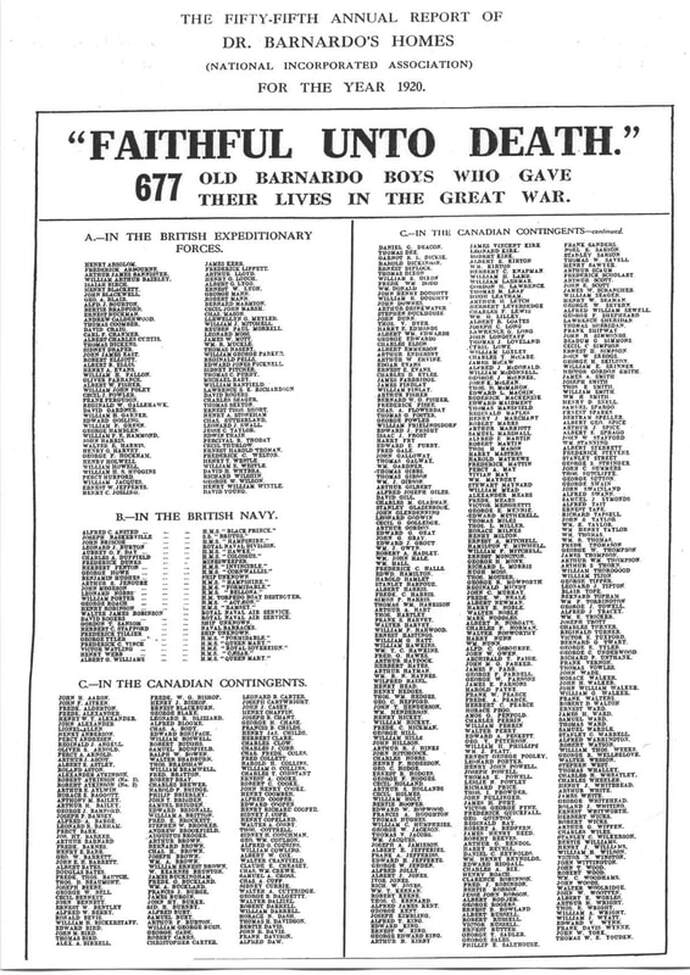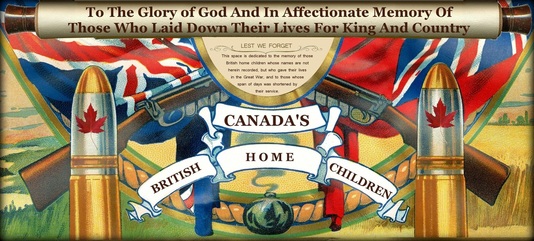The British Home Children who perished in the First World War
List compiled with information from Perry Snow, Marjorie P. Kohli and John Sayers
names researched by Jennifer Layne - Head Researcher of the First World War Project,
Lori Oschefski, Carol Black, Marjorie Kolhli and Dona Crawford
First World War Plaque designed by Dawn Heuston
|
purchased in 2014 for the BHCARA displays, a poppy from the London Tower Blood Swept Lands and Seas exhibit
for information visit: http://poppies.hrp.org.uk/ |
1111 names currently on the list
|
Registry of British Home Children who Died in the First World War
visit our new registry site
This site has been put together with the help of Jennifer Layne, Lori Oschefski,
Sharon Munro, Roy Leigh, Susan Brazeau, Dawn Heuston, Dona Crawford,
The Library and Archives Canada have published our list in their
Home Children Records index
November 11th 2014 Queen's Park, Toronto Remembrance Service
For the first time in Toronto, a Memorial wreath was laid at the Queen's Park Remembrance Service for the British Home Children who served and who died in the wars. Purchased through donations form BHCARA members, the wreath was laid by our Head Research of the First World War Project - Jennifer Layne, accompanied by CEO & Founder, Lori Oschefski.
Free printable download of the Honour Roll Plaque
|
The Honour Roll Plaque which lists most of the name of our BHC who perished in or as a result of the First World War was designed from the Memorial plaque of BHC Cecil Bennett sent to his NOK (Ben Johnson, the farmer he was placed with) after his death at Vimy Ridge. Ben's Grandaughter Wilda Hay & her family donated Cecil's items to the BHCARA. Dawn Heuston modified the plaque to be used as the memorial plaque for all BHC who perished. The boys below with a star by their underlined names were discovered after this honour roll was printed, therefore do not appear on the plaque. We will eventually redo the plaque to include these names.
| ||||||
|
|
A poem written about BHC Will Nash's
death in WW1 by his friend Reg Thorne Private Nash Will Nash came out from England's shores And down Springhill did roam. He went to Edward Jackson's place And called it "Home Sweet Home". But he was just a young lad then And when he grew up tall. He knew not of his native home, Nor thought of it at all. He saw the war clouds growing dark, And when they grew too dense, He started out to do his bit For his Homeland's defense. Of course he drilled as usual. Here and in England too. Then went to France to try his luck As many more boys do. He fought in trenches side by side With boys he's always known. They saw him get the fatal fall That killed him dead as stone. Some folks may sing of mighty men, Who do things great and brave. They did no more than private Nash And ended in the grave. He had no relatives at all To mourn the deed just done. But Edward Jackson and his wife They mourned him like a son. For they had grown to love him well Since he was just a boy, The only parents that he knew They were his pride and joy. A Service to his memory In Havelock Church was made. For folks remembered what he'd done And of the price he paid. His name is on the honor roll Where King and council sit. All honor then to poor Will Nash. Who did his little bit. R. A Thorne (1917) (Age 17) by Ren Thorne of Lower Ridge: "Threads of Time, A History of Lower Ridge" |
The Liverpool Sheltering Home Memorial Plaque (Louisa Birt)
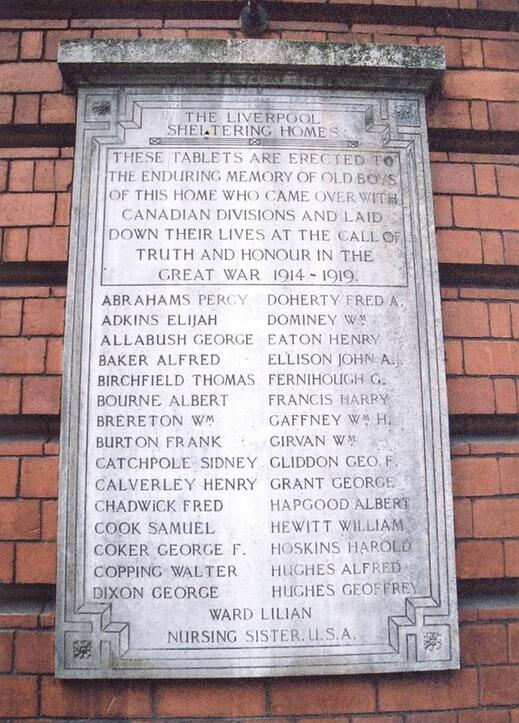
Names
Abrahams, Percy
Adkins, Elijah
Allabrush, George
Baker, Alfred
Birchfield, Thomas
Bourne, Albert
Brereton, Wm
Burton, Frank
Catchpole, Sidney
Caverley, Henry
Chadwick, Fred
Cook, Samuel
Coker, George F
Copping, Walter
Dixon, George
Doherty, Fred A
Dominey, Wm
Eaton, Henry
Ellison, John A
Fernihough, G
Francis, Harry
Gaffney, Wm. H.
Girvan, Wm
Gliddon, Geo. F
Grant, George
Hapgood, Albert
Hewitt, William
Hoskins, Harold
Hughes, Alfred
Hughes, Geoffrey,
Ward, Lilian Nusing Sister
Abrahams, Percy
Adkins, Elijah
Allabrush, George
Baker, Alfred
Birchfield, Thomas
Bourne, Albert
Brereton, Wm
Burton, Frank
Catchpole, Sidney
Caverley, Henry
Chadwick, Fred
Cook, Samuel
Coker, George F
Copping, Walter
Dixon, George
Doherty, Fred A
Dominey, Wm
Eaton, Henry
Ellison, John A
Fernihough, G
Francis, Harry
Gaffney, Wm. H.
Girvan, Wm
Gliddon, Geo. F
Grant, George
Hapgood, Albert
Hewitt, William
Hoskins, Harold
Hughes, Alfred
Hughes, Geoffrey,
Ward, Lilian Nusing Sister
| barnardos_roll_of_honour.jpg | |
| File Size: | 10040 kb |
| File Type: | jpg |
HEROISM OF BARNARDO BOY
Fell Succoring the Wounded, Writes Canadian Chaplain
Flesherton Advance 1915-1917
At 5.30 on Easter Monday morning the barrage on Vimy Ridge started, and immediately thereafter the boys went over the parapet. Five minutes later a Canadian doctor and a chaplain followed them. With the doctor was a young lance-corporal; "pure gold," says the chaplain. With the chaplain was a sergeant; "as fine a man as ever served his King," is the chaplain's description of him. The doctor took the right section, the chaplain and the sergeant went to the left, searching the shell holes for the wounded, doing some rough and ready first aid, and administering such help and comfort as were possible. While engaged in this work the young sergeant was killed. The chaplain had turned aside a few feet to ask for direction from some men, when one of them said, "Your sergeant is hit." I ran to him," said the chaplain, describing what happened, "but one glance told me he was gone. The great artery was shot through, and in a moment the bravest, most unselfish man I ever knew had gone home." The concluding sentences of the letter are as follows: "I cannot close without telling of my intense admiration for the men and officers who gained this great victory. The battalion came out utterly exhausted, but with the spirit of conquerors. For our dead we mourn, but. at the same time, shall always remember with pride and joy their measureless faithfulness. What they died for we must live for. Never shall I forget the boy I left behind, his wonderful unselfishness, his sublime courage. Some day I shall see him again, and tell him how I love him for what he was in himself, and what he did for others. If only he had lived, he and I would have been one in the friendship begotten of a great experience. He was a Barnardo boy, homeless, but a friend and lover of his Master." " Go make thy garden fair as thou canst, Thou workest never alone. Perchance he whose plot is next to thine Will see it, and mend his own." —Robert Collyer
Fell Succoring the Wounded, Writes Canadian Chaplain
Flesherton Advance 1915-1917
At 5.30 on Easter Monday morning the barrage on Vimy Ridge started, and immediately thereafter the boys went over the parapet. Five minutes later a Canadian doctor and a chaplain followed them. With the doctor was a young lance-corporal; "pure gold," says the chaplain. With the chaplain was a sergeant; "as fine a man as ever served his King," is the chaplain's description of him. The doctor took the right section, the chaplain and the sergeant went to the left, searching the shell holes for the wounded, doing some rough and ready first aid, and administering such help and comfort as were possible. While engaged in this work the young sergeant was killed. The chaplain had turned aside a few feet to ask for direction from some men, when one of them said, "Your sergeant is hit." I ran to him," said the chaplain, describing what happened, "but one glance told me he was gone. The great artery was shot through, and in a moment the bravest, most unselfish man I ever knew had gone home." The concluding sentences of the letter are as follows: "I cannot close without telling of my intense admiration for the men and officers who gained this great victory. The battalion came out utterly exhausted, but with the spirit of conquerors. For our dead we mourn, but. at the same time, shall always remember with pride and joy their measureless faithfulness. What they died for we must live for. Never shall I forget the boy I left behind, his wonderful unselfishness, his sublime courage. Some day I shall see him again, and tell him how I love him for what he was in himself, and what he did for others. If only he had lived, he and I would have been one in the friendship begotten of a great experience. He was a Barnardo boy, homeless, but a friend and lover of his Master." " Go make thy garden fair as thou canst, Thou workest never alone. Perchance he whose plot is next to thine Will see it, and mend his own." —Robert Collyer
Finding the Fallen - Episode 1 - Barnardo Boy
Will Maybury's Story
Extracts from Publications Globe and Mail, The 10 November 2008, page A2 Web Link A moving tale of lives lost and found THIS COUNTRY: REMEMBERING THE FALLEN A moving tale of lives lost and found ROY MacGREGOR November 10, 2008 They say the good die young, but losing your life twice by the time you're 25 seems a bit much. Still, this is Will Maybury's story: the good young man who fought, and died, for the country that abandoned him. He was a "bastard" - the result of "immoral relations" - and belonged, until the authorities took him away, to "a drunken family, the grandmother included." At least that's the way the official documents once described him. Today, the broken family he helped put back together prefers to think of him as a "hero." Corporal Will Maybury was hit by shrapnel at Passchendaele on October 28, 1917. He died from his infected wounds five weeks later. It is hard for anyone today to imagine the horrors of the 25th year of his short life. He commanded a small group of men who fired mortars from the heart of battle. In the spring of 1917, he helped take Vimy Ridge. In summer, he fought in the Battle of Hill 70. In the fall it was Passchendaele. By then he would have known his luck was running thin, if not altogether out. But then, it was always hard to tell whether Will Maybury was very lucky or very unlucky. He was born in Sheffield, England, in 1892 to an impoverished widow who had taken in a roomer. A sister, Elsie, followed two years later and, six more years later, brother George was born. They were undernourished and illegitimate and, eventually, the authorities moved in and shipped Will, 11, and Elsie, 9, off to Canada where they became two of the many thousands of "Bernardo Children" sent to the colony to serve as farm helpers and domestic servants - some would say "slaves." They both ended up in Ontario, but in different communities, and did not see each other for 10 years, by which time little George had also been shipped out to Canada. They were apart yet thrived. Annual "check-ups" found them well and happy in their new land. By 1914, Will and Elsie had reconnected and were living in the same small town of Brussels. They had also tracked down George, and Elsie had sent the little brother photographs of her and Will picnicking with a young man and woman. Will seems a ham, even wearing his girlfriend's hat in one photo. In the last picture, he is in uniform, looking very serious. He went off to train in England, using his downtime to travel to Sheffield in the hopes of tracking relatives. It is not known what he found there. In fact, hardly anything at all would be known of Cpl. Will Maybury were it not for a History Channel project called Finding the Fallen. Archeologists working nine decades after the Battle of Hill 70 found evidence that Maybury and his men had commandeered a German mortar pit, turning it against the Germans who tried, unsuccessfully, to retake the vital ground more than 30 times in a bitter 10-day battle. Using these field findings, a historian and a genealogical expert eventually worked their way to three living Mayburys in Canada, the descendants of Will's little brother George, who had also died young but who left behind a wife and infant son. That little boy, also called George, had long been curious about his family. When he died several years ago, he left behind what the children had come to call "The Family Tickle Trunk" stuffed with papers from the Bernardo foundation, those few photographs and a lot of unanswered questions. Yap Films, producers of the eight-episode series that begins tomorrow evening with Bernardo Boy, took the contents of the Tickle Trunk, added in a series of letters Will had written to sister Elsie that had been reprinted in the local weekly, and began putting Will Maybury's lost life back together. It is a powerful, moving tale of lives lost and lives found. "The whole experience kind of caught us off-guard," says the third George Maybury, who lives in Pembroke, Ont. "Up to that point, they had been just strangers on paper." What most intrigues today's Mayburys is how a boy who was abandoned by his country would then feel an obligation to return to fight for that country. Will Maybury was but one of 6,000 "Bernardo Boys" who enlisted - some 500 of them not coming "home" to Canada. "Today," says George Maybury, "it would be all about animosity and frustration, not about going off to defend king and country. "But he stepped up - and I respect him for that." He stepped up, as so many did, knowing that the chances of returning unharmed from the front lines were slim indeed. "He survived Vimy Ridge," says David Maybury, who works in Ottawa for National Defence. "He survived Hill 70. But he didn't survive Passchendaele. "He almost made it." The Maybury Family Tickle Trunk held but a single postcard with Will Maybury's own handwriting, but someone had glued paper over it and it was unreadable. A forensic scientist took the card and carefully removed the cover so Will Maybury's only saved message home could finally be read:
"We are going to leave for France tonight. Will write you from France. "Bye bye."
Flesherton Advance 1915-1917 HEROISM OF BARNARDO BOY Fell Succoring the Wounded, Writes Canadian Chaplain. At 5.30 on Easter Monday morning the barrage on Vimy Ridge started, and immediately thereafter the boys went over the parapet. Five minutes later a Canadian doctor and a chaplain followed them. With the doctor was a young lance-corporal; "pure gold," says the chaplain. With the chaplain was a sergeant; "as fine a man as ever served his King," is the chaplain's description of him. The doctor took the right section, the chaplain and the sergeant went to the left, searching the shell holes for the wounded, doing some rough and ready first aid, and administering such help and comfort as were possible. While engaged in this work the young sergeant was killed. The chaplain had turned aside a few feet to ask for direction from some men, when one of them said, "Your sergeant is hit." I ran to him," said the chaplain, describing what happened, "but one glance told me he was gone. The great artery was shot through, and in a moment the bravest, most unselfish man I ever knew had gone home." The concluding sentences of the letter are as follows: "I cannot close without telling of my intense admiration for the men and officers who gained this great victory. The battalion came out utterly exhausted, but with the spirit of conquerors. For our dead we mourn, but. at the same time, shall always remember with pride and joy their measureless faithfulness. What they died for we must live for. Never shall I forget the boy I left behind, his wonderful unselfishness, his sublime courage. Some day I shall see him again, and tell him how I love him for what he was in himself, and what he did for others. If only he had lived, he and I would have been one in the friendship begotten of a great experience. He was a Barnardo boy, homeless, but a friend and lover of his Master." " Go make thy garden fair as thou canst, Thou workest never alone. Perchance he whose plot is next to thine Will see it, and mend his own." —Robert Collyer

